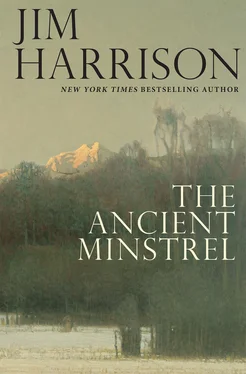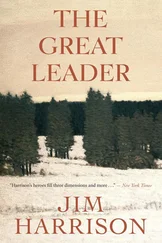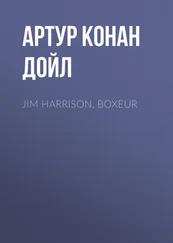He looked forward to his seventieth birthday and it finally arrived as it must. On this birthday he planned on becoming a free-floating geezer, above criticism from both others and himself. He drank when he chose and after a couple of notorious sexual failures he was deterred and stopped trying. He finally asked a doctor friend who told him that the nine pills he took daily since his spinal surgery would kill sex for an elephant or a whale. He thought of discarding his pills but then he didn’t want to die quite yet. As a beginning writer he had planned on publishing books until the moment of death, hopefully twenty of them at least, a nineteenth-century program but as a young writer he fashioned himself a nineteenth-century man, vigorous, athletic, hardworking, bold. Unfortunately he was ten books behind schedule. In recent months he had completed both a novel and a book of novellas but now at seventy he was utterly exhausted. Once again he consulted his doctor drinking friend who diagnosed complete exhaustion and that he had blown out his adrenals. Since he didn’t know what adrenals were and wasn’t curious he settled for the fact that they were blown out. He quit work of any sort except for an occasional poem and the journal he kept and took to sleeping a great deal of the day plus the night. The shingles and neuralgia left him without REM sleep at night because his salves and pills didn’t last for long, but in the day he could apply a lot of salve and nap for an hour in comfort. He recovered from the overexertion of writing two books at once but the exhaustion would never completely go away.
At the bar since his seventieth birthday his friends had taken to calling him “old man.” This amused rather than troubled him. Most were in their fifties. A couple in their twenties were permitted at the hallowed table because he judged them to be good writers. Three of the men at the table were old friends, and artists, who were always more vivid than writers. They also cooked much better than poets and novelists, he had no idea why. He was the putative master of ceremonies of the table and had the errant talent of keeping the conversation going whenever everyone flagged. Occasionally Dolly, a poet, would join them. She was brave enough to withstand the vulgarity of their dialogue and answer them in kind, sometimes going over the edge and embarrassing them. It was comic to him that several of his friends refused to acknowledge the advent of aging. Maybe subconsciously they realized it because they often acted afflicted with a false heartiness, telling stories of totally fictional seductions without realizing that no one believed them. He thought long and hard about male vanity and the need to prolong these manly delusions past the point of any possible credibility, similar to wanting to go to war until you actually got there. He remembered the old quote he had read somewhere, “There is no God but reality. To seek him elsewhere is the action of the fall.” What was the point in pretending you were any age but the one you were?
One hot afternoon at the tavern he dropped a modest bomb he had written in his journal. “We all are on death row living in cells of our own devising.” This started a loud quarrel between the two who took full responsibility for what they were and the four others who blamed a panoply of circumstances. His own father had liked to say, “Why blame anybody else because you’re a fuckup?” He favored this one, admitting that everything that had gone radically wrong in his life could be traced to causes that sat in his own lap. He had also been taught that it was unmanly to be forever blaming someone else for one’s problems. Dolly, the poet, piped up to say she had been painfully raped by three boys when she was eleven. There was dead silence, until a stupid drunk said, “The exception proves the rule,” and he was roundly booed. Everyone else apologized to Dolly for this horrible thing. He had always thought this “exception” statement to be obtuse.
Of late his spirits had taken an upturn from his habitually dour attitude toward life. He continued to use his studio despite separating from his wife, and one afternoon he was in there listening to Schubert on NPR when a house wren appeared at the screened window and began aggressively singing back at the radio. This went on for quite a while and he recalled from his boyhood as a nature obsessive that a marsh wren has a more involved language than a house wren. He was troubled he could come up with no further memory about wrens. This one nested in a blocked stovepipe on the roof and perhaps thought that the Schubert was a competitive bird, although it then seemed to be excitedly singing along with the Schubert bird. He tried to recall something from the Internet his wife had passed along, how at the University of Chicago researchers were scientifically monitoring the dream life of finches. They found that finches have dream songs they never sing otherwise. Just like us, he thought. The gifts of childhood were the trees, rivers, birds, flowers. He wondered where his little guidebooks from that era were. He went down in the studio basement looking for old stray book boxes. He found the field guide to trees, not his favorite. He recalled asking in Sunday school why God was so messy in creating so many kinds of trees. The teacher became angry at him for questioning God. He cried on the long walk home feeling like a sure-thing sinner though deep within himself he couldn’t stop questioning the immense variety of species on earth. It was confusing for a boy.
The night before he had experienced a repeat of the most disconcerting nightmare of his life. Sometimes when he had it he awoke vomiting on the floor, bending out of bed and letting go. It had all started soon after he lost his left eye in an accident. A girl, a playmate, had shoved a broken beaker into his eye that she’d picked up from the trash pile at the edge of the woods behind the hospital. He walked next door to the doctor’s wife Mrs. Kilmer’s and she cleaned him up and called her husband and his parents. He ended up in a hospital down in Grand Rapids for a month. When he got home finally, the left side of his face was covered with bandages. The doctor had saved the life of his eye but not his vision. About a week later the flu swept through the town of Reed City and he got a severe case. Another week later the annual town minstrel show was scheduled. No one in town ever missed it but a few drunks and a smattering of the very poor like the dump picker, his wife, and their daughter for whom they took up a class collection every year to buy her socks for the winter or she’d go without. He lied to his parents and said he was feeling better when in fact he was still nauseous and shivering with fever. They couldn’t find a sitter and his parents very much wanted to see the minstrel show. They wrapped him in his father’s deer hunting coat to protect him from the cold November evening and the small auditorium which was always too cool. They sat down in the front row and the show made them dizzy, and a fat man sitting next to them kept farting. Ordinarily, he would have found this funny but in his current condition it amplified his living nightmare. He was deeply embarrassed. All the people onstage were in blackface, including a chorus of women who also danced. The men were recognizable as town leaders despite their heavy makeup. Everyone sang very loudly and poorly, he thought. No one for sure was a Bing Crosby. He dozed for a few minutes and when he looked out again he was sweating with fever and the stage was whirling as if time were passing in an old movie. He vomited in his father’s hunting coat and partly on the floor. It was very loud and the stage action paused. “We’ve had a reaction to our performance,” a minstrel yelled and everyone laughed. His father whisked him out with his mother in tow. It was early November and there was some fresh fallen powdery snow. When his father put him down near the car he took a handful of the snow and wiped it across his face and mouth. It felt delicious.
Читать дальше












